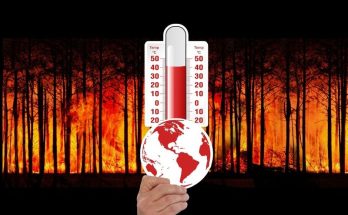Extreme Weather Events. Image credit unsplash/NOAA
#ExtremeWeatherEvents; #WorldWeatherAttributionGroup; #ClimateAction
Record-breaking heatwaves are sweeping across the northern hemisphere, affecting large parts of southern Europe, the US and China. On July 24, Sicily recorded blistering temperatures of more than 47.5℃ and wildfires are currently tearing through Greece. The heatwaves come as record numbers of fires continue to burn across Canada.
A study by the World Weather Attribution group found that these heatwaves would have been “virtually impossible” without climate change. In fact, the heat wave that is affecting parts of China was made 50 times more likely by global warming. This is exactly what climate scientists have been warning us about for decades—climate change makes many types of extreme weather event more likely, more intense and longer lasting.
As a Ph.D. researcher examining extreme weather events and climate change communication, I have spent the past four years exploring how extreme weather events may affect the way the public feels, thinks and acts on climate change.
One area of interest to researchers is how extreme weather events might reduce the “psychological distance” associated with climate change. While climate change can feel abstract and vague, extreme weather is something people can experience firsthand.
But research offers contrasting results. Some studies have found that extreme weather events lead to an increased belief that human-driven climate change is occurring and greater support for climate action. Others find no effects or suggest that these effects are only temporary.
However, we often underestimate how much the public already cares about climate change. In Britain, just 4% of the public say they are not at all concerned about climate change, while only 11% of Americans dismiss the issue.
Given that most people are already concerned about climate change, an important question now is how to shift these existing concerns into action.
Talking about climate change is a powerful way of mobilizing climate action, and extreme weather events provide helpful climate conversation starters. We can use these moments as opportunities to engage our families, friends and communities in discussions about how climate change may relate to these events and what we can do about it.
So, if you decide to engage people you know in discussions about extreme weather and climate change, here are a few thoughts and guidelines to keep in mind.





